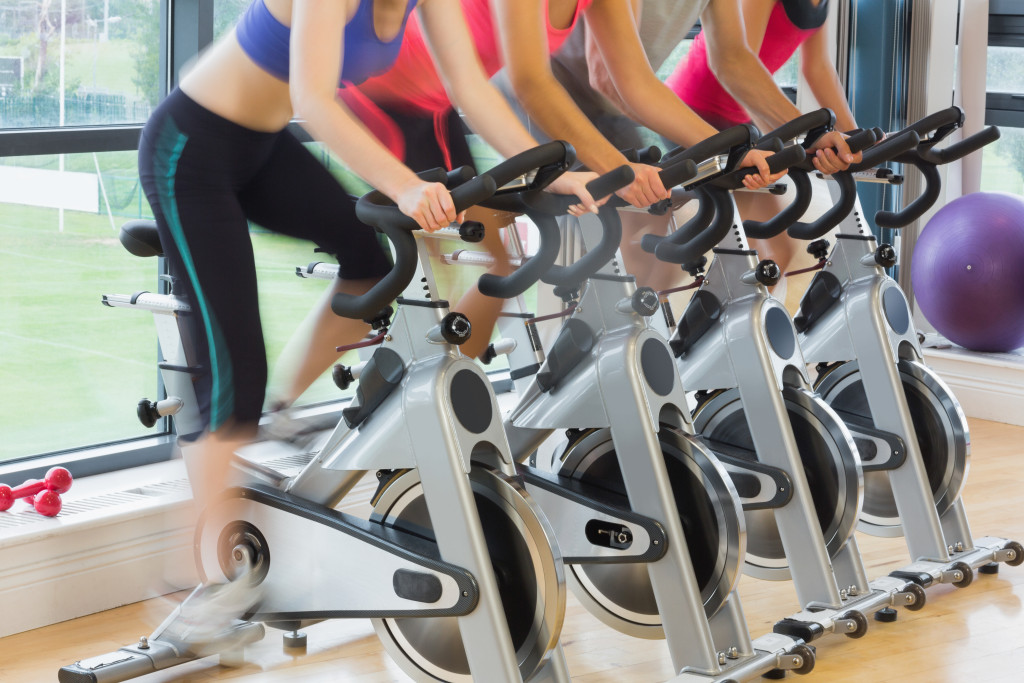Did you know that exercising can do more than just improve your overall health — it can also improve your oral health? That’s right; working out regularly can lead to healthier teeth and gums. This blog post will discuss how exercise can benefit your oral health and what you can do to ensure your teeth and gums stay healthy while you work up a sweat.
How Exercise Can Benefit Your Oral Health
With all the benefits that exercise provides, it’s no wonder that more and more people are hitting the gym or running every day. But did you know that exercise can also improve your oral health? Here is how:
Boosts Saliva Production
When you work out, you tend to breathe through your mouth more often than when you’re at rest. This increased airflow can actually help to stimulate saliva production. Saliva is nature’s way of washing away harmful bacteria and keeping your mouth clean.
So, the more saliva you have, the better. Not only does increased saliva production help to keep your mouth clean, but it can also help to neutralize the acids that contribute to tooth decay.
Reduces Stress
It’s no secret that exercise can help to reduce stress. And when you’re less stressed, you’re less likely to grind your teeth or clench your jaw. This can lead to healthier teeth and gums and can also help to prevent headaches and jaw pain. Stress can also weaken your immune system, which makes you more susceptible to infections — including gum disease.
Gum disease is an inflammation of the gums that can lead to tooth loss if left untreated. Regular exercise has been shown to reduce the risk of developing gum disease. Additionally, if you already have gum disease, exercise can help to slow its progression.
Prevents Bad Breath
When you work out, you sweat, which can cause bad breath. However, exercising also helps to reduce the levels of volatile sulfur compounds (VSCs) in your mouth, which are one of the main causes of bad breath. Additionally, the increased saliva production helps to wash away VSCs and other harmful bacteria that cause bad breath.
So, even though working out might make your breath smell temporarily, it’s actually doing wonders for your long-term oral health. Also, be sure to drink plenty of water before, during, and after your workout to help keep your mouth hydrated and wash away any bacteria that might cause bad breath.
Increase the Blood Flow and Reduce the Risk of Cavities
Exercise increases blood flow throughout your body, including to your gums. This increased blood flow helps to deliver more nutrients and oxygen to the tissues in your mouth and can help to reduce the risk of cavities.
Additionally, exercise has been shown to reduce the levels of stress hormones in your body. These stress hormones can actually weaken tooth enamel, making your teeth more susceptible to cavities.
So, there you have it — exercise can actually improve your oral health! But how can you ensure your teeth and gums stay healthy while working out? Let’s find out!

Tips for Maintaining Good Oral Health
Now that you know how exercise can benefit your oral health, here are a few tips to help you maintain good oral health while working out:
1. Brush Your Teeth Twice a Day
You should already be brushing your teeth at least twice a day, but it’s even more important to brush your teeth if you’re working out regularly. Be sure to brush your teeth before and after your workout to remove any bacteria that might cause tooth decay or gum disease.
2. Floss Daily
Flossing is just as important as brushing your teeth. Be sure to floss at least once a day, preferably before bedtime. This will help remove any food particles or bacteria that might be stuck between your teeth.
3. Visit Your Dentist Regularly
It’s important to visit your dentist every six months for a checkup and cleaning. Also, if you need any dental work done, it’s best to get it done as soon as possible. For example, same-day dental implants can help replace missing teeth and prevent further tooth loss. Your dentist will walk you through any procedure you might need and help you determine the best course of action for your individual needs.
4. Eat a Healthy Diet
What you eat affects your oral health just as much as how often you brush and floss. Be sure to eat a balanced diet with plenty of fruits, vegetables, and whole grains. Also, limit sugary and acidic foods and drinks, as they can contribute to tooth decay.
Exercise is important for maintaining good overall health, but did you know that it can also improve your oral health? That’s right; regularly exercising can lead to healthier teeth and gums. So next time you hit the gym or go for a run, remember that you’re not just doing good for your body — you’re also doing good for your smile!




